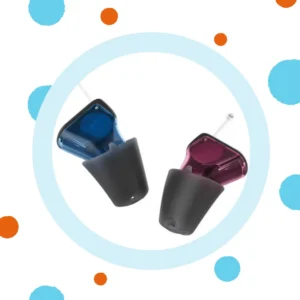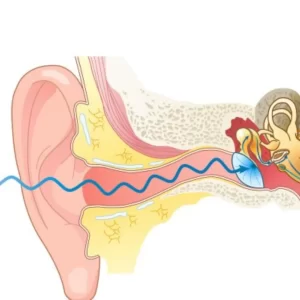
Best Hearing Aids for Small Ear Canals: Finding Your Perfect Fit
TL;DR: Small ear canals require specific hearing aid designs to ensure comfort and performance. The best options include completely-in-canal (CIC) models like the Signia Silk
Home » Presbycusis: Age-Related Sensorineural Hearing Loss and Coping Strategies

Table of Contents
Toggle
Let’s talk about a common change that sneaks up on many as they age: hearing loss. But what specifically triggers this decline in our listening prowess? Enter presbycusis.
Presbycusis—or, as the Greeks might say, “elder hearing”—is the top cause of hearing loss among those over 65. Nearly two-thirds of adults in this age group experience it. It’s easy to chalk it up to the usual wear and tear of aging, but there’s more to the story.
Think of your inner ear as a high-tech sound studio. It has tiny, delicate hair cells in the cochlea that transform sound waves into electric signals. These signals make their way to your brain, and voila, you hear! However, presbycusis creeps in as these hair cells gradually degrade over time.
What’s behind the breakdown of these crucial hair cells in presbycusis?
Presbycusis doesn’t happen overnight. It’s essential to catch early symptoms and not brush them off. The following section will explore these signs and discuss effective coping strategies. Aging might be mandatory, but struggling with hearing loss isn’t! Stay tuned to learn how you can stay connected and active, no matter your age.
Is hearing the kids a challenge? Maybe those chirping crickets sound strangely silent lately? You might be facing presbycusis.

Catching these signs early can dramatically ease your daily communications and overall life quality. Here’s how:
Are you noticing any of these symptoms? Take our hearing quiz now. Diagnosing presbycusis early can help you manage it better. Remember, taking action early keeps you tuned in to the sounds of life!

Just diagnosed with presbycusis? Here’s how to navigate your new hearing landscape.
Find out more about teleaudiology.
Though presbycusis is a lifelong companion, it’s one you can manage well. Equip yourself with the right tools and knowledge, and keep your social and communication lines open. Remember, you’re not alone in this. You can still enjoy every note of life’s symphony with the right approach.
Say hello to the cutting-edge hearing aids revolutionizing how we manage presbycusis!
Ready to tune out presbycusis and tune into life? Chat with a hearing professional to find your perfect sound solution. You deserve to hear every moment clearly!
Are you navigating life with presbycusis? Here are fun, practical ways to keep communication crisp and life lively.

Embrace these strategies to enhance your daily life despite presbycusis. Let’s turn up the dial on life’s joys, not just the volume!
We’ve explored ways to manage presbycusis hearing loss, from savvy communication tips to home tweaks. Presbycusis symptoms need not silence your life’s soundtrack. With the right strategies and technologies, you can continue to enjoy every note.
Ready to hear what you’ve been missing? Why not check your hearing with Injoy Hearing’s online hearing quiz today? It’s quick, easy, and could be the first step towards tuning back into the fullness of life. Take the quiz now and amp up your auditory experience! Let’s make hearing loss a thing of the past and clear sound a part of your everyday life.

TL;DR: Small ear canals require specific hearing aid designs to ensure comfort and performance. The best options include completely-in-canal (CIC) models like the Signia Silk

Your audiologist just recommended rechargeable hearing aids. Great choice. But naturally, you want to know: how long before you’re shopping again? The answer splits into

You asked your spouse to repeat themselves. Again. The TV volume crept up another notch. Friends make jokes about your signs of hearing loss. These

You dropped serious money on Phonak hearing aids. Now you’re wondering how long they’ll actually work before you’re back at square one. Fair question. Hearing
To start your journey towards better hearing with confidence, Injoy is proud to offer a 45-day risk-free hearing aid trial. This allows you to experience the difference our hearing aids can make, ensuring they meet your expectations and fit your lifestyle perfectly.
Improve your hearing and improve your life today by contacting Injoy to learn more! Call (844) 914-3331

Need hearing aids? Explore our range of hearing aids and discover the best option for your lifestyle and Unique Hearing Needs.
Are you a current patient with us? We're here to help with any adjustments, repairs, or support you may need.